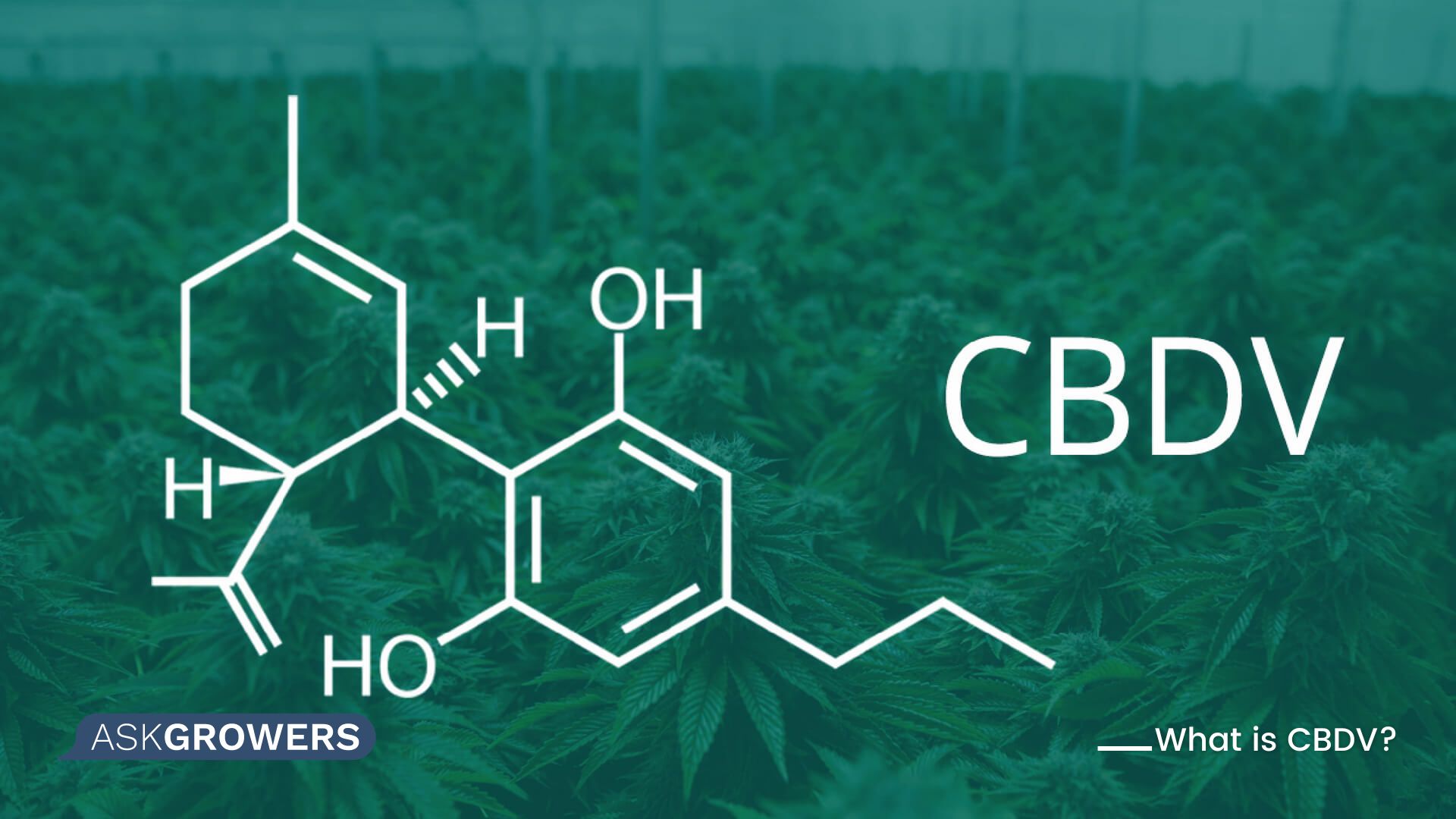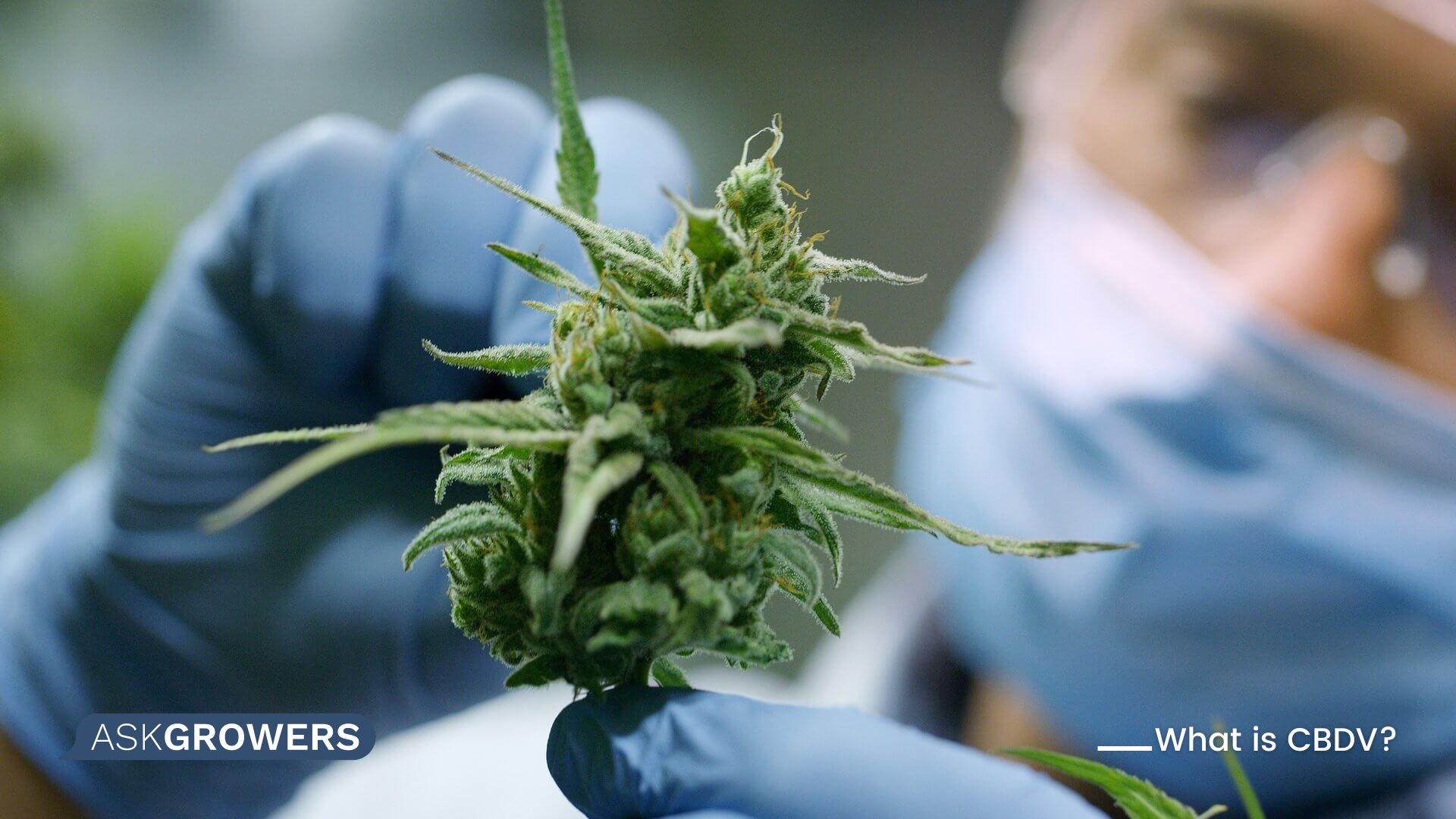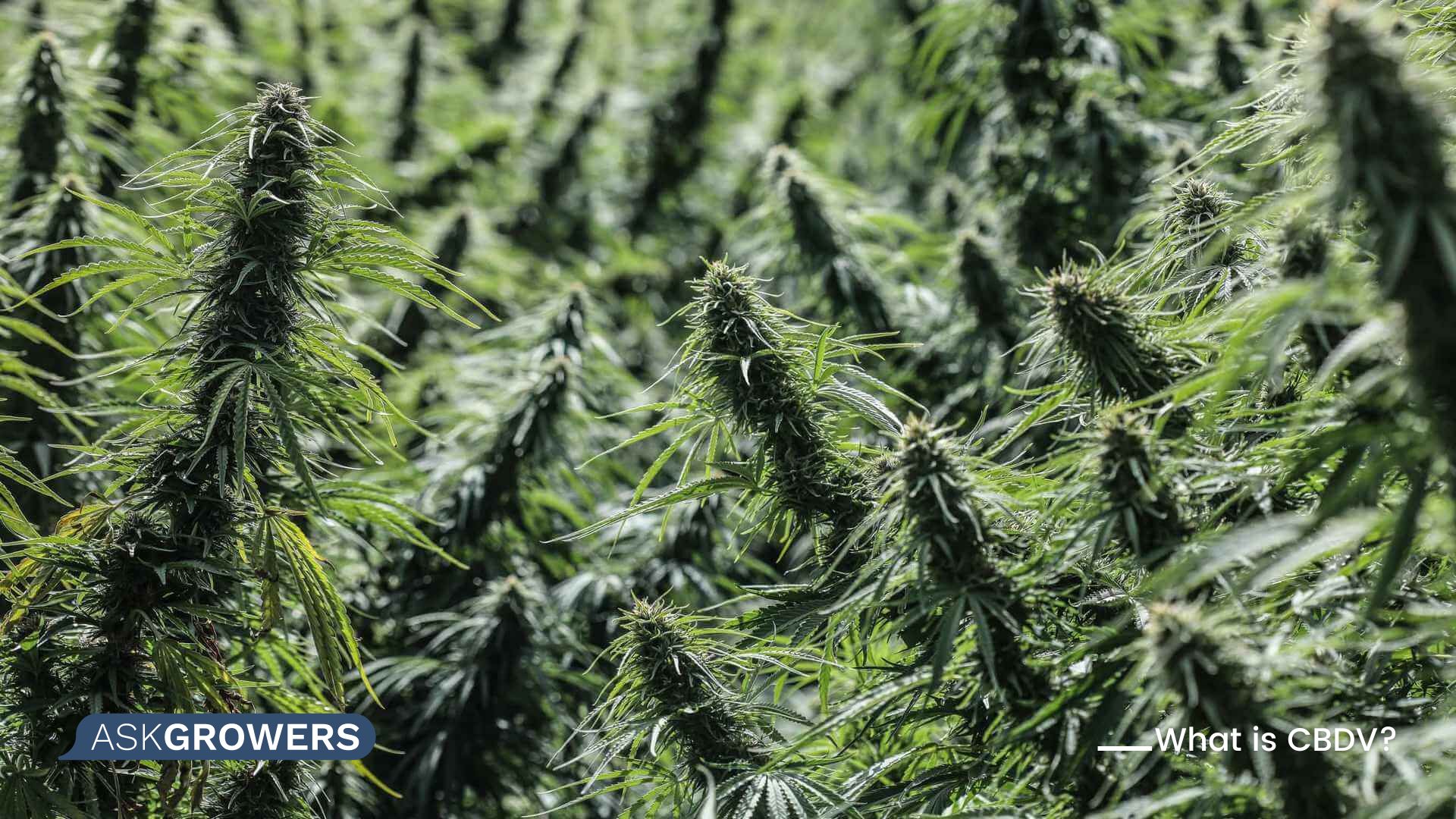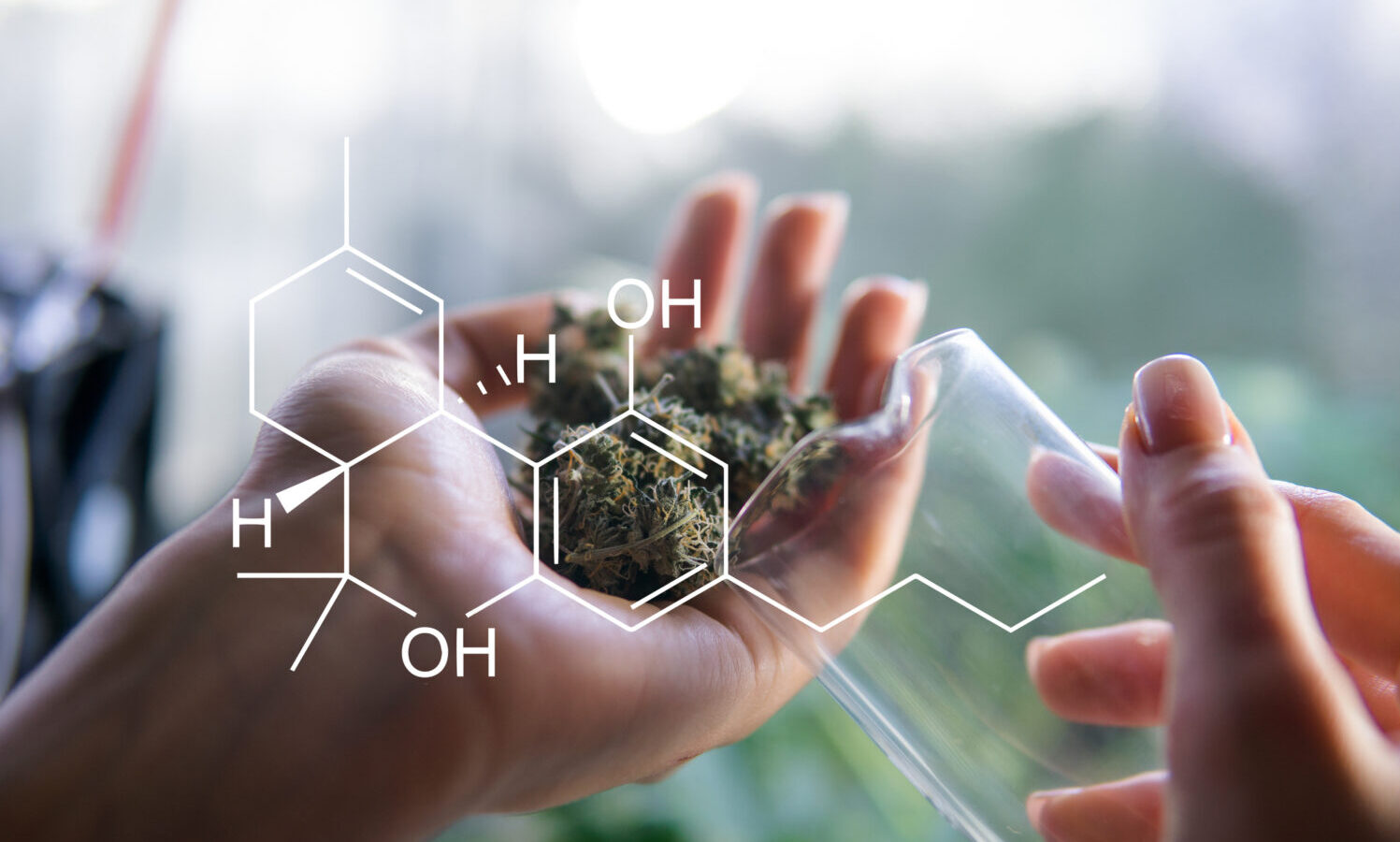Unlike THC, delta-8, and THC-O, this cannabinoid is safe to use and has few side effects. Studies have shown the absence of toxicity, dangerous symptoms, and withdrawal effects.
It is one of the cannabinoids found in marijuana. In terms of structure and properties, it is most similar and close to CBD. But what is CBDV and how is it different from CBD. CBDV is a propyl analog of CBD, although they are not identical.
It was discovered in 1969 along with other cannabinoids, including the better-known THC and CBD. However, its valuable medicinal properties began to be investigated only very recently.
In the late 2010s, scientists drew attention to the fact that the therapeutic properties of СBDV are somewhat different from the effects of other cannabinoids on the human body.

Properties and Health Benefits of CBDV
The last few years have been fruitful in terms of research on CBDV benefits. Some of these studies have been officially supported by pharmaceutical giants as well as the US government.
RELATED: 7 Best Marijuana Strains For Overall Good Health And Disease Prevention
Much of the CBDV research is so new that it has not yet reached the stage of clinical trials. So the studies presented here are mostly preclinical researches conducted in laboratories and animal models. But perhaps unsurprisingly (for those who already have some knowledge of cannabinoids), the research base supporting CBDV’s enormous potential is already compelling.
Health benefits of CBDV include:
- Anticonvulsant property. Makes it an impeccable remedy for the treatment of epilepsy of various origins. This effect is still being investigated. But it is already known that the ability to reduce seizures does not depend on CB1 receptors.
- Reduces nausea. Scientists hope that, like other cannabinoids, CBDV has pronounced antiemetic properties. In 2013, a study was conducted on rats that led to the hope that CBD-V has the potential to reduce such symptoms.
- Analgesic property. Research is being conducted on the ability of CBDV to reduce neuralgic pain.
- Reduces anxiety. One of the CBDV effects is the improvement of the psychological state due to the effect on the balance between excitatory (glutamate) and inhibitory (GABA) neurotransmitters.
- Antibacterial action. Especially against gram-positive bacteria. But this property is less pronounced than in CBD.
- Antioxidant potential. Reduces inflammation and protects cells of the nervous system.

What Disorders Does CBDV Help Treat?
The main research on CBDV has focused primarily on its functions in alleviating the symptoms of nervous disorders. Most of the studies were conducted on animals. But they showed good results, which give hope for effective application in various directions.
CBDV and Neurological Diseases
Administration of CBDV may reduce the neurological and social problems caused by Rett syndrome. This is a disease that affects the development of the brain. Studies in mice have shown the ability of CBDV to improve memory and motor coordination, as well as regulate the expression levels of CB1 and CB2 receptors.
Cannabidivarin in Autism Spectrum Disorders
Preclinical studies have shown the indispensable role of cannabidivarin for autism. The connection is that the cannabinoid can influence excitatory-inhibitory processes in the brain, which are associated with autistic disorders. One of the major pharmaceutical companies is currently conducting the final stage of research related to autism spectrum disorders.
CBDV in Duchenne Muscular Dystrophy
Studies have shown that CBDV promotes muscle growth. This applies to both healthy people and people with DMD, a genetic disease with progressive muscle wasting. This occurs due to the formation of myoblasts and myotubes, as well as due to the activation of TRPA1 and TRPV1 receptors.
RELATED: What Is THC-O And Why Is This Psychedelic Cannabinoid 3x Stronger Than THC?
CBDV vs CBD – Which One is Better?
CBDV is most similar to CBD, but scientists have already found out what is CBDV cannabinoid and its special features, which are different from CBD. The difference is only in the length of the side chain. CBD consists of 5 carbon atoms, while CBDV consists of 3 carbon atoms. The length of the carbon affects the ability of cannabinoids to bind to endocannabinoid receptors and the nervous system and is, therefore, an important property of the substance.
Possible CBDV Side Effects and Safety Measures
CBDV is a non-psychoactive cannabinoid similar to CBD. Unlike THC, delta-8 THC, and THC-O, this cannabinoid is safe to use and has few side effects. Studies have shown the absence of toxicity, dangerous symptoms, and withdrawal effects.

Strains High in CBDV
Most often, CBDV is featured in Indica cultivars from Pakistan, Mexico, or India.
If you want cannabis rich in CBDV, you should look into strains like:
- Royal CBDV. It is one of the first strains of this cannabinoid. It contains 5% cannabidivarin, 5% CBD and a minimal THC level of 0.3%. This strain has a piney earthy aroma and a noticeable boost of energy.
- CBDV Auto. This strain has a CBDV/THC ratio of 25:1 as well as approximately 4% CBD. It’s Sativa with mild earthiness and a light resin coating.
- Forbidden V. It contains 5.6% CBDV and 8.6% CBD. The strain has a fresh and exotic fruity taste and a terpene profile that invigorates and invigorates creativity.
- Pine Walker. The strain has 8.48% CBD and 6.80% CBDV. It is characterized by the taste of lemon and the fragrance of needles, as well as the properties of Indica.
Where to Get Products with CBDV?
People who have developed a CBDV appetite wonder if it is possible to legally buy products containing it. Whatever the goal, it is better to consult a doctor beforehand. He will tell you which variety of cannabis will suit your personal needs. It is much more effective and safer than self-medication.
Conclusion
Since research on the effects of CBDV is ongoing, soon we can count on new results from these searches and, accordingly, wait for sensational products that would help solve a range of medical problems.


